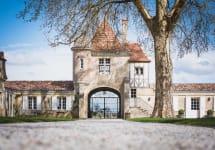Chateau Rauzan-Segla 2015
-
Jeb
Dunnuck -
Robert
Parker -
James
Suckling -
Wine
Enthusiast - Decanter
-
Wine
Spectator



Product Details
Your Rating
Somm Note
Winemaker Notes
Looking, smelling and tasting a glass of Rauzan-Segla wine is an invitation to a journey like no other. An adventure that is full of unique and delicious experiences that characterise the fine wines from Bordeaux. This journey of pleasure begins on the eye. The beauty of a color so intense that is impossible to take one's eyes off of it. A color that draws us in and makes us want to discover its secrets. The pleasure of its luxurious aromas disclosing cigar box notes which combine harmoniously with aromas of ripe fruits. Like a protective cocoon promising the ultimate in epicurean pleasures. The first sip coats the palate seductively with a combination of finesse, elegance and unparalleled charm. The wine's smooth, complex texture will make you want to linger over the tasting experience. To taste a glass of Rauzan-Segla is to savor its fruity freshness and let yourself be transported by its silky smooth texture, the result of over 3 centuries of winemaking expertise. It is to get lost in the eternal pleasures of tasting a fine Bordeaux, safe in the knowledge that it will reveal all its magnificent power over the years to come.
Professional Ratings
-
Jeb Dunnuck
I underrated the 2015 Rauzan-Ségla on release. It’s a big, rich, incredibly sexy wine that’s certainly in the same ballpark as the 2016 (and 2018). Full-bodied, ripe, and concentrated, it has a wonderfully expansive, layered texture as well as an incredible sense of balance. Lots of cassis, leafy herbs, flowery incense, and tobacco notes all emerge from this beauty, which offers sweet tannins as well as a huge finish. This is magical stuff that’s going to keep for three decades or more.
-
Robert Parker's Wine Advocate
Deep garnet-purple in color, the 2015 Rauzan-Ségla offers up an expressive nose of baked blackberries, kirsch, warm cassis and baked plums with hints of cigar box and tilled soil. Full-bodied, rich and expansive in the mouth, it has layer upon layer of bold red and black fruit preserves with earthy accents and a velvety texture, finishing long and lively. The blend this year is 63% Cabernet Sauvignon, 33% Merlot, 3% Petit Verdot and 1% Cabernet Franc, harvested between September 10th and October 9th, at an average yield of 40 hectoliters per hectare. It was aged for 18 months in French oak, 65% new. The alcohol is 14%.
-
James Suckling
Extremely aromatic with dried flowers, perfumed and sandalwood and blackcurrants. Full body, ultra-fine tannins, a gorgeous core of ripe fruit and blackcurrants and blueberries. Racy and very long. So impressive. This needs four or five years to come around but already so fine.
-
Wine Enthusiast
Structure is the watchword for this wine. With dark tannins and concentration, it obviously has long-term potential. At the same time, the black-currant fruits are ripe and full bodied, giving rich contrast to the tannins. These two elements will allow this wine to age. It will be ready to drink from 2025.
Cellar Selection -
Decanter
Dating back to 1661, Rauzan-Segla had under-performed for many years prior to its purchase in 1994 by Chanel owners, the Wertheimer family. With significant investment, the estate has regained its former glory. Highly successful in 2015, this is refined, elegant and precise with a bright red/black fruit character and lovely freshness on the palate. It will benefit from a few more years in bottle but undoubtedly has star-quality.
-
Wine Spectator
This takes a very fresh approach, with a seemingly open-knit feel to the mix of mulled raspberry and red currant fruit. Pretty lilac, incense and singed apple wood notes underscore the fruit, while silky but persistent tannins carry the finish. Delivers latent depth and precise balance, so don’t let this early charm fool you, as this should unfurl beautifully in the cellar. Best from 2022 through 2040.
Other Vintages
2024- Vinous
-
James
Suckling
- Vinous
-
Robert
Parker - Decanter
-
Jeb
Dunnuck
-
Jeb
Dunnuck -
Wine
Spectator -
Robert
Parker -
James
Suckling - Decanter
- Vinous
- Decanter
-
James
Suckling -
Jeb
Dunnuck -
Robert
Parker -
Wine
Spectator
- Decanter
-
Robert
Parker -
Jeb
Dunnuck -
James
Suckling - Vinous
-
Wine
Enthusiast
-
Jeb
Dunnuck -
Robert
Parker - Decanter
-
Wine
Spectator
-
James
Suckling -
Jeb
Dunnuck -
Robert
Parker - Decanter
-
Wine
Enthusiast -
Wine
Spectator
-
Robert
Parker -
Wine
Enthusiast -
Wine
Spectator -
Jeb
Dunnuck - Decanter
-
James
Suckling
-
James
Suckling -
Jeb
Dunnuck -
Robert
Parker -
Wine
Enthusiast -
Wine
Spectator - Decanter
-
James
Suckling -
Wine
Enthusiast -
Jeb
Dunnuck -
Robert
Parker -
Wine
Spectator
-
Wine
Enthusiast -
Jeb
Dunnuck -
Robert
Parker -
James
Suckling -
Wine
Spectator
- Decanter
-
Wine
Enthusiast -
James
Suckling -
Jeb
Dunnuck -
Robert
Parker -
Wine
Spectator
-
Jeb
Dunnuck -
James
Suckling -
Robert
Parker - Decanter
-
Wine
Enthusiast -
Wine
Spectator
-
James
Suckling -
Jeb
Dunnuck -
Wine
Enthusiast -
Robert
Parker -
Wine
Spectator -
Wine &
Spirits
-
James
Suckling -
Wine
Enthusiast -
Jeb
Dunnuck -
Wine
Spectator -
Robert
Parker
-
Wine
Enthusiast -
James
Suckling -
Robert
Parker -
Wine
Spectator
-
James
Suckling -
Wine
Spectator -
Wine &
Spirits -
Wine
Enthusiast -
Jeb
Dunnuck -
Robert
Parker -
Whisky
Advocate
-
Wine
Enthusiast -
Robert
Parker -
Wine
Spectator
-
Wine
Enthusiast -
Wine
Spectator -
Robert
Parker
-
Wine
Spectator -
Jeb
Dunnuck -
Wine &
Spirits -
Wine
Enthusiast -
James
Suckling -
Robert
Parker
-
Jeb
Dunnuck
-
Robert
Parker -
Jeb
Dunnuck
- Decanter
-
Wine
Spectator -
Robert
Parker -
Jeb
Dunnuck
-
Wine
Spectator -
Robert
Parker -
Jeb
Dunnuck
-
Wine
Spectator
-
Robert
Parker -
Wine
Spectator
-
Robert
Parker
-
Wine
Spectator
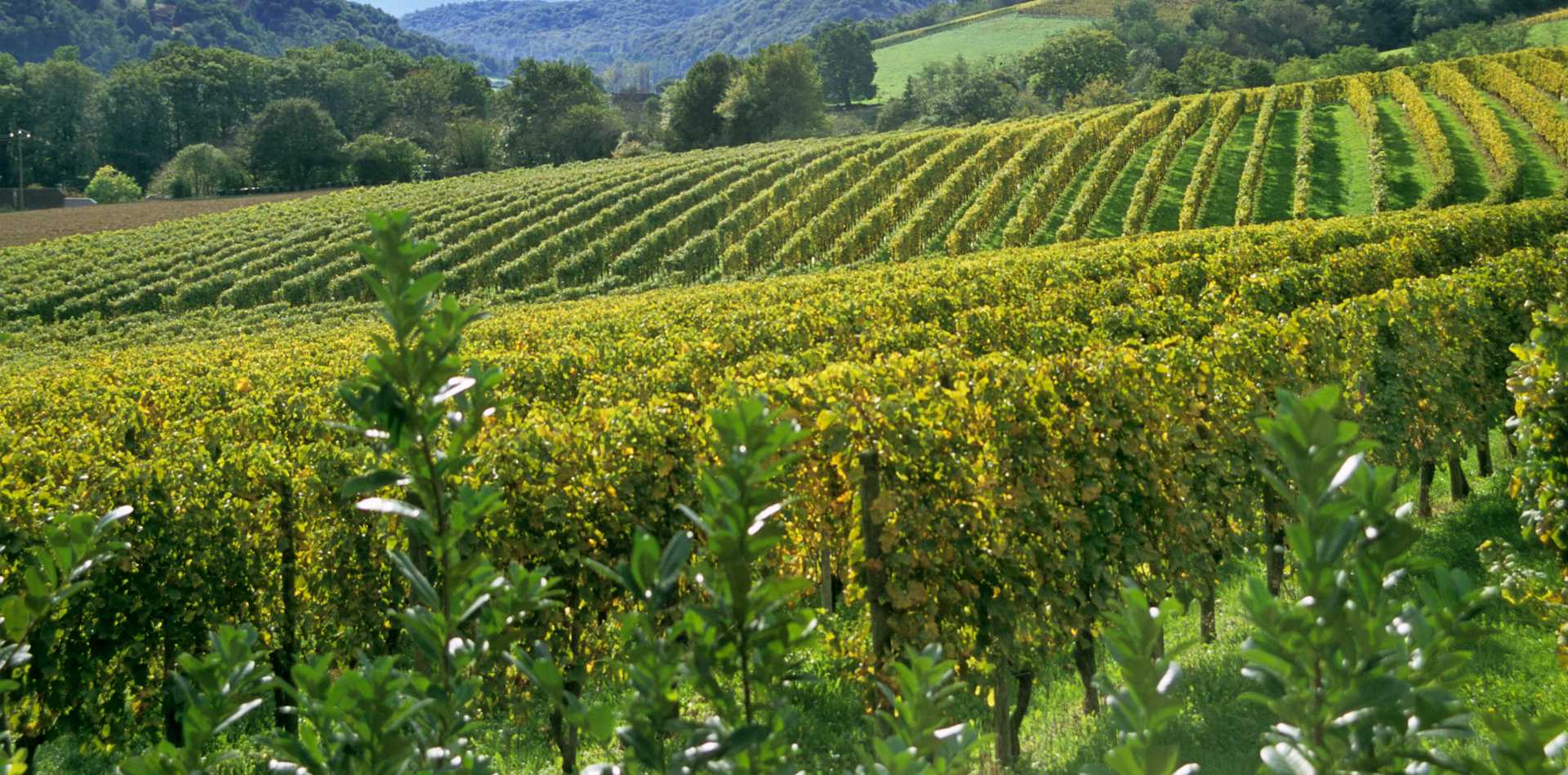
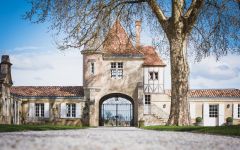
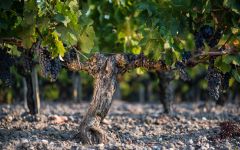
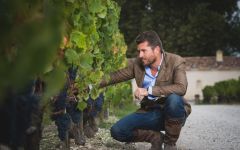
The wines here have delighted many well-know figures, most famously Thomas Jefferson who came across this wine during his visit to the vineyards of Bordeaux, placing an order for several cases of it. He thus became a fervent admirer or Rauzan-Segla wines. Some decades later, the 1855 Classification ranked Chateau Rauzan-Segla as a Second Growth.
The current chateau was built in 1903, designed by architect Louis Garros, who drew inspiriation from the original Perigord-style buildings in the the chateau, as well as G. LeBreton who designed the park and green spaces. Then time went by and the chateau gradually fell into a slumber.
Then, CHANEL purchased Chateau Rauzan-Ségla in April 1994 and immediately started a full renovation programme. The vineyard has been drained – a 15-kilometer network is now in place, 2 parcels of Petit Verdot were planted and 3 hectares of vines were grafted over with Merlot. Today, 51 hectares are in production for an average total production of 200 000 bottles – Chateau Rauzan- Ségla and its second wine Ségla. The winery has been adapted and large vats progressively replaced by smaller capacities – matching the parcels' sizes. From the 2004 picking on, grapes will be sorted on two 10-meter long vibrating tables, so that each single berry is checked before entering the vats. Maturation cellars have been completely renovated and a new room built for the bottling-labelling machines – making Chateau Rauzan-Ségla fully independent for the entire production process.

One of the world’s most classic and popular styles of red wine, Bordeaux-inspired blends have spread from their homeland in France to nearly every corner of the New World. Typically based on either Cabernet Sauvignon or Merlot and supported by Cabernet Franc, Malbec and Petit Verdot, the best of these are densely hued, fragrant, full of fruit and boast a structure that begs for cellar time. Somm Secret—Blends from Bordeaux are generally earthier compared to those from the New World, which tend to be fruit-dominant.

Silky, seductive and polished are the words that characterize the best wines from Margaux, the most inland appellation of the Médoc on the Left Bank of Bordeaux.
Margaux’s gravel soils are the thinnest of the Médoc, making them most penetrable by vine roots—some reaching down over 23 feet for water. The best sites are said to be on gentle outcrops, or croupes, where more gravel facilitates good drainage.
The Left Bank of Bordeaux subscribes to an arguably outdated method of classification but it is nonetheless important in regards to history of the area. In 1855 the finest chateaux were deemed on the basis of reputation and trading price—at that time. In 1855, Chateau Margaux achieved first growth status, yet it has been Chateau Palmer (officially third growth from the 1855 classification) that has consistently outperformed others throughout the 20th century.
Chateau Margaux in top vintages is capable of producing red Cabernet Sauvignon based wines described as pure, intense, spell-binding, refined and profound with flavors and aromas of black currant, violets, roses, orange peel, black tea and incense.
Other top producers worthy of noting include Chateau Rauzan-Ségla, Lascombes, Brane-Cantenac, and d’Issan, among others.
The best wines of Margaux combine a deep ruby color with a polished structure, concentration and an unrivaled elegance.
